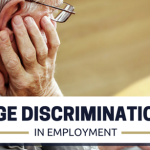
Although there has been a recent shift away from NDAs (Non-Disclosure Agreements) or confidentiality provisions in settlement agreements related to employment discrimination claims, they remain very prevalent. Most settlement agreements contain language that prevents an employee or former employee from discussing the terms of the settlement or even allegations related to the discrimination or harassment experienced by the employee.
Additionally, settlement agreements oftentimes contain non-disparagement provisions that limit the employee’s ability to make negative comments about the company (or its employees). While these limitations can have certain benefits for both parties, they almost always favor the employer. Ultimately, if a settlement agreement contains an NDA, an employee must weigh his/her desire to speak publicly about what took place against his/her desire to resolve the matter by way of a monetary settlement.
With the #MeToo movement came a push to limit the use of NDAs in settlement agreements related to claims of sexual harassment and sex discrimination. In 2017, a federal tax law went into effect which limited a company’s ability to deduct settlement payments for tax purposes when the agreement contains a non-disclosure provision. The purpose of this law was to restrict a company’s ability to prevent an employee from discussing allegations of sexual harassment publicly. While that is certainly a positive development, there remain concerns that this may have also had the unintended consequence of causing some employers to devalue sexual harassment claims or even discourage employers from settling sexual harassment claims altogether.

Employees must know what they can or cannot talk about if they are going to enter into a settlement agreement with their employer. When you receive a settlement or severance agreement from an employer, it is important that you fully understand your obligations and the impact that each provision will have on you. This is not a situation to play an armchair attorney.
Having an experienced employment lawyer review the agreement before you sign will give you the knowledge to make a fully informed decision that is best for you.








